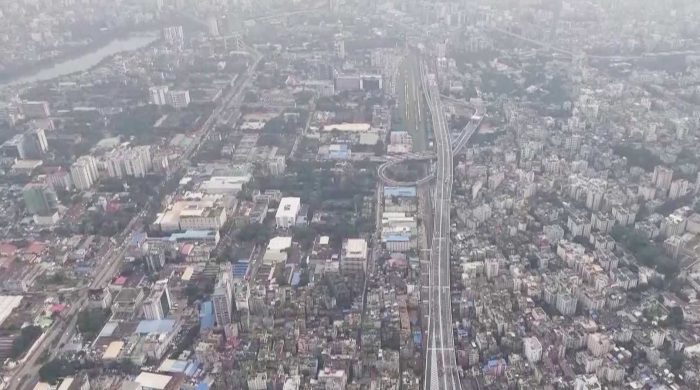

Air pollution is increasing day by day in small and large cities around the world due to various reasons, including climate change. Megacity Dhaka has been suffering from air pollution for a long time.
However, if it rains occasionally, the pollution in the air in the city will decrease a little.
As of 9 a.m. on Tuesday, August 20, the capital city of Dhaka was ranked 40th with a score of 59, which is considered moderate in terms of pollution, according to IQAir, an international air technology institute.
At the same time, Jakarta, Indonesia, topped the list of the world’s most polluted cities with a score of 164. Apart from this, Brazil’s Sao Paulo is in the second position with a score of 153, Bahrain’s capital Manama and Pakistan’s Lahore are in the third and fourth positions, respectively, with a score of 127, and Kuwait’s capital Kuwait City is in the fifth position with a score of 122. An AQI score of zero to 50 is considered good. A score of 51 to 100 is considered moderate, and a score of 101 to 150 is considered unhealthy for sensitive groups. A score of 151 to 200 is considered ‘unhealthy’ air. An AQI score between 201 and 300 is considered’very unhealthy’. In this situation, children, the elderly, and sick patients are advised to limit their activities inside the house and others outside the house. Also, an AQI between 301 and 400 is considered ‘risky’, posing a serious health risk to city dwellers. Also read: ‘Environmental pollution can be prevented if EPR is implemented’ Generally, AQI is determined based on five types of pollutants. Such as particulate matter (PM10 and PM2.5), NO2, CO, SO2, and ozone (O3). Air pollution poses serious health risks. It is harmful for people of all ages.
However, air pollution is very harmful for children, sick people, the elderly, and pregnant women.